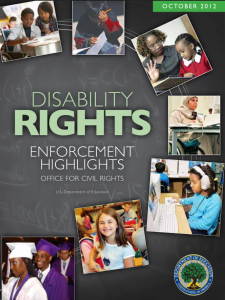Overturning a preliminary injunction issued by a lower court, the U.S. Court of Appeals for the Eighth Circuit handed down a ruling this week that a blog created by Missouri high school students containing both sexist and racist speech was unlikely to be First Amendment protected speech.
The three judge panel unanimously overturned a district’s court’s preliminary injunction which had allowed the Lee’s Summit North High School student creators of a blog to return to school pending a court decision on whether the speech on the blog was protected.
In the case, two twin brothers, Sean and Steven Wilson, created a website called NorthPress, part of which contained a blog. According to the Wilson brothers, the purpose of the site was to “discuss, satirize, and ‘vent’ about events at Lee’s Summit North.” Because they used a Dutch domain site, U.S. users were prevented from finding the website using a search engine. However, any person could access the website provided they knew the website address: NorthPress was not password protected.
During December, 2011, the twins added posts to the NorthPress blog which included a variety of sexist and racist content. The sexist comments went to far as to mention a fellow female student by name. The racist posts discussed various altercations that had taken place at the school and mocked black students.In addition, a third unnamed student added another racist post.
The exact degree to which the speech was off-campus was a matter of dispute in the case. It was shown during the case that one of the Wilson twins used a school computer for the purpose of uploading computer files necessary for the creation of their website. District records also show that the website was accessed two other days, but District was unable to prove who accessed the site or whether they merely looked at the site or contributed files to it.
In additional testimony, the Wilsons stated that they only told five or six other students about the site, but by December 16, 2011, the student body was definitely aware of the site’s existence, and school administrators became aware of it that same day. Following a brief investigation, the school suspended the two boys for ten days and referred them for expulsion. There ensued a hearing, then an appeal by the Wilsons, then a second hearing at the conclusion of which the Wilsons were suspended from Lee Summit North but were allowed to attend Summit Ridge Academy. The Wilsons filed suit seeking a preliminary injunction in order to lift the suspensions.
The District Court quickly conducted a preliminary injunction hearing. In the trial, the Wilsons argued that their website was satirical rather serious and that they were not racist. Further, they argued that their website had not caused disruption at the school. The boys testified that December 16, was pretty much like every other day at Lee Summit North. Their additional testimony related to the fact that attending Summit Ridge Academy was deny them the opportunity to possibly attain a band scholarship and also to take honors level classes.
During this hearing the District argued that student body wide discovery of the site had indeed caused substantial disruption. District argued that returning the boys to Lee Summit North would cause further disruption at the site and could endanger the boys’ safety.
A federal district judge ruled in the boys’ favor, holding that while the speech may not be protected, the boys were suffering irreparable harm by not being able to attend their regular school. Based on the March ruling, the boys were allowed to return to Lee Summit North.
The school district immediately appealed the lower court’s ruling. On October 17, 2012, the 8th Circuit issued its opinion in S.J.W. v. Lee’s Summit R-7 School District, finding for the district and overturning the original preliminary injunction.
The court’s decision is in line with a number of Federal Courts of Appeals holdings addressing student off-campus speech which creates a campus disruption. Applying the Tinker standard, the court reasoned that here, while it was contested whether or not the speech occurred on campus or not, the speech had as its target the students of Lee Summit North. This, coupled with the fact that the speech had been found to have been responsible for causing a substantial campus disruption, meant the students’ speech was unlikely to be protected under the First Amendment, and thus the students’ discipline should remain in place pending an actual hearing to decide the issue.
In addressing the issue of irreparable harm to the twins, the 8th Circuit held that the school the boys were to attend was accredited and would allow the twins to graduate on time. Further, on the issue of college scholarships, the Court held that potential scholarships were too speculative in nature to constitute harm to the boys.
The case brought up another novel legal issue which the Court was able to dispatch without ruling on its merits. Attorneys for the twins argued that they could succeed on the merits of their case under the Communications Decency Act (CDA) which states in relevant part, “[n]o provider or user of an interactive computer service shall be treated as the publisher or speaker of any information provided by another information content provider.” 47 U.S.C. § 230(c)(1). The gist of their argument was that as publishers of NorthPress,the boys were merely providers of a computer services, NorthPress, and they cannot be held responsible for the content of the third student’s racist post, which they contended during the case that if there was a disruption, it was due to that post, not theirs.
The three judge panel made no determination as to whether the CDA applied here, since the point was moot. The lower court had found that the twin’s post had been disruptive to the school, not just the single post of the third student. This being true, the CDA would not apply.
In the end, the decision of what is to happen to the boys pending a final decision on their case was left to the lower court.







